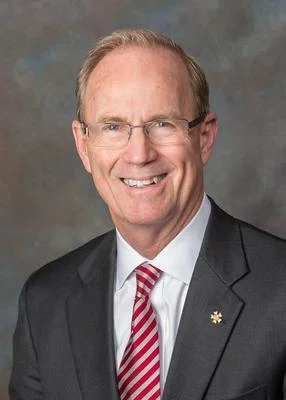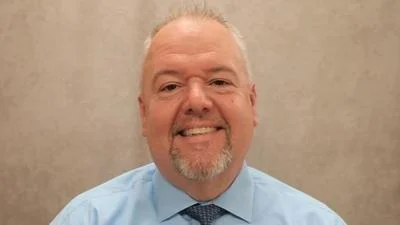Former Naperville City Council Member Kevin Coyne | nctv17.org
Former Naperville City Council Member Kevin Coyne | nctv17.org
A Chicago attorney and former member of the Naperville City Council has termed Ranked Choice Voting – a system advocated for by progressive organizations like FairVote Illinois, where voters rank candidates from their most preferred to least preferred, instead of selecting a single candidate – as one where negative campaigning increases, all votes are not counted and results in more gaming of elections.
“Ranked Choice Voting has proved to be a confusing disaster wherever it’s been implemented. The absolute last thing American voters need right now is more distrust of and dramatic changes to how we vote. RCV leads to more votes being not counted, more delayed results, more gaming of elections,” Kevin Coyne, an attorney with Chuhak Tecson, said in an emailed statement to DuPage Policy Journal.
Coyne added the practice “encourages even more negative campaigning and extremism as campaigns have an incentive to see other candidates picked last.”
“There is not a single compelling reason to pursue Ranked Choice Voting unless one believes their ‘team’ can do a better job of defaming candidates on the other ‘team’. Hopefully, Naperville will see through this sham and wholly reject this terrible idea,” Coyne said.
A post on X from @SafeSuburbsUSA read, “Naperville, Ranked Choice Voting is a progressive scam designed to game and manipulate elections. Please do not sign their activist petition and please vote no to this ridiculous idea if it ends up on the ballot. #OpposeRCV #SaveDemocracy”
In “ranked choice” or “instant runoff” voting, voters rank candidates from highest to lowest preference, instead of voting for a single candidate. If none of the candidates were chosen as the number one pick by a majority of voters, then the candidate with the lowest number of votes is eliminated from the ballot, and that candidate’s votes are automatically changed to their second choice. The scores for each candidate are re-calculated, over and over again, until a candidate wins a majority.
Former Democrat California Governor Jerry Brown, Jr. vetoed a bill to expand “ranked choice” voting in his state, calling it “overly complicated and confusing” and stating it “deprives voters of genuinely informed choice.”
“In a time when we want to encourage voter participation, we need to keep voting simple,” Brown said.
In the 2010 “ranked choice” Oakland, California mayoral election, candidate Don Perata received 40,342 votes, the most of ten candidates running and 11,076 more than Jean Quan, who was eventually declared the winner over Perata after ten rounds of re-calculation.
Hans A. Von Spakovsky, senior fellow at the Heritage Foundation called “ranked choice” voting a tactic to “tinker with and manipulate our elections.”
“In the end, it is all about political power, not about what is best for the American people and for preserving our great republic. So-called reformers want to change process rules so they can manipulate election outcomes to obtain power,” he said. “It disenfranchises voters, because ballots that do not include the two ultimate finalists are cast aside to manufacture a faux majority for the winner. But it is only a majority of the voters remaining in the final round, not a majority of all of the voters who actually cast votes in the elections.”
A 2014 study of 600,000 ballots cast using “ranked choice” voting in Washington State and California found that “the winner in all four elections received less than a majority of the total votes cast.”
In 2022, the City of Evanston became the first municipality in Illinois to approve “ranked choice” voting for its own elections. It plans to change to “ranked choice” in its April 2025 municipal elections.
Earlier this month, Skokie Village Board members rejected using the practice of Ranked Choice voting.
Their board had considered placing Ranked Choice voting on a referendum, but ultimately chose not to after a review of the measure by legal experts from the law firm Klein, Thorpe and Jenkins, Ltd. (KTJ), as well as examining other reports on ranked choice voting.






 Alerts Sign-up
Alerts Sign-up